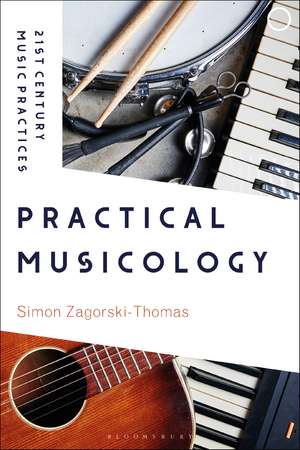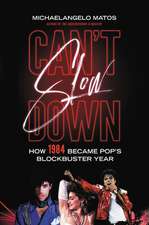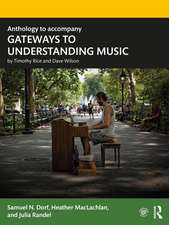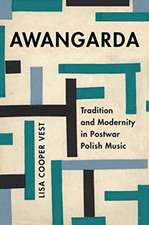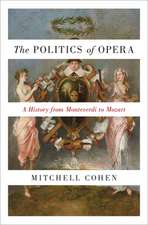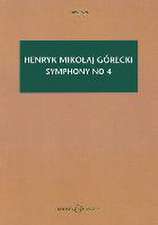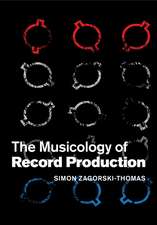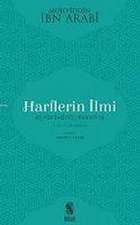Practical Musicology: 21st Century Music Practices
Autor Professor Simon Zagorski-Thomasen Limba Engleză Paperback – 20 mar 2024
| Toate formatele și edițiile | Preț | Express |
|---|---|---|
| Paperback (1) | 191.31 lei 6-8 săpt. | |
| Bloomsbury Publishing – 20 mar 2024 | 191.31 lei 6-8 săpt. | |
| Hardback (1) | 568.80 lei 6-8 săpt. | +120.31 lei 6-12 zile |
| Bloomsbury Publishing – 10 aug 2022 | 568.80 lei 6-8 săpt. | +120.31 lei 6-12 zile |
Preț: 191.31 lei
Preț vechi: 249.34 lei
-23% Nou
Puncte Express: 287
Preț estimativ în valută:
36.61€ • 39.89$ • 30.85£
36.61€ • 39.89$ • 30.85£
Carte tipărită la comandă
Livrare economică 24 aprilie-08 mai
Preluare comenzi: 021 569.72.76
Specificații
ISBN-13: 9781501392870
ISBN-10: 1501392875
Pagini: 246
Dimensiuni: 152 x 229 x 25 mm
Greutate: 0.34 kg
Editura: Bloomsbury Publishing
Colecția Bloomsbury Academic
Seria 21st Century Music Practices
Locul publicării:New York, United States
ISBN-10: 1501392875
Pagini: 246
Dimensiuni: 152 x 229 x 25 mm
Greutate: 0.34 kg
Editura: Bloomsbury Publishing
Colecția Bloomsbury Academic
Seria 21st Century Music Practices
Locul publicării:New York, United States
Caracteristici
An inclusive approach to studying musical practices that is not tied to a single musical tradition or style
Notă biografică
Simon Zagorski-Thomas is Professor at the London College of Music, University of West London, UK, and is Co-Chairman of the Association for the Study of the Art of Record Production. He worked for 25 years as a composer, sound engineer, and producer and is, at present, conducting research into 21st Century Musical Practice. His books include The Art of Record Production (2012), co-edited with Simon Frith, and The Musicology of Record Production (2014), winner of the 2015 IASPM Book Prize.
Cuprins
1 Introduction2 Context3 Musicking4 Learning and Knowing5 Communication and Influence6 Interaction and Influence7 Systems and NetworksAfterwordBibliographyIndex
Recenzii
What could musicology be in the 21st century? In his book, Simon Zagorski-Thomas outlines a practical musicology that wholeheartedly embraces all contemporary forms of sound and music production between streaming audio, game sounds, EDM and engineering a record production. The future of musicology, as Zagorski-Thomas envisions it, is a musicology that provides historical and technological knowledge and critique of how music and sound are actually produced, presented, experienced and consumed: a comprehensive musicology of aesthetic practices, which is indeed urgently needed.
Practical Musicology is a brave and brilliant exploration of ways to explore and research 21st-century music practices anew. Drawing on his own exemplary research practice, Simon Zagorski-Thomas critically and eloquently advances and applies new ideas to Practical Musicology, ones which lay out a new theoretical framework, harnessing models of knowledge, capacity, power, identity, and technology anew, to illustrate, not only how 'to do' music, but also how 'to do music better'. A new and provocative Practical Musicology is put to work to explain how aesthetics emerge, develop and become embodied in practice. This is a must-read for all of us whose wanting a new 'way in' for thinking critically and differently about 21st-century music practices.
Practical Musicologyis just that - a practical introduction to the study of music making as a thing we do, consciously or unconsciously, separately or together, according to deeply embedded conceptual schemata that can give rise to powerful aesthetic judgments embedded in diverse and non-linguistic forms of human communication. It also provides a very sophisticated theoretical introduction to an embodied and practice-based musical epistemology: how what we do with music influences what we can think, know and say about it. Zagorski-Thomas brings his own aesthetic sensibility as a composer, engineer, and teacher to bear, persuasively making the case that a practical musicology will concern itself not just with what musicians have done, or why - but how they can do what they do, better. As a statement of musicological purpose, this volume is thus both practical and visionary in the same breath, much like that complex, ineffable group activity we have come to call "music," wherever, whenever, and however we engage in it.
Practical Musicology is a brave and brilliant exploration of ways to explore and research 21st-century music practices anew. Drawing on his own exemplary research practice, Simon Zagorski-Thomas critically and eloquently advances and applies new ideas to Practical Musicology, ones which lay out a new theoretical framework, harnessing models of knowledge, capacity, power, identity, and technology anew, to illustrate, not only how 'to do' music, but also how 'to do music better'. A new and provocative Practical Musicology is put to work to explain how aesthetics emerge, develop and become embodied in practice. This is a must-read for all of us whose wanting a new 'way in' for thinking critically and differently about 21st-century music practices.
Practical Musicologyis just that - a practical introduction to the study of music making as a thing we do, consciously or unconsciously, separately or together, according to deeply embedded conceptual schemata that can give rise to powerful aesthetic judgments embedded in diverse and non-linguistic forms of human communication. It also provides a very sophisticated theoretical introduction to an embodied and practice-based musical epistemology: how what we do with music influences what we can think, know and say about it. Zagorski-Thomas brings his own aesthetic sensibility as a composer, engineer, and teacher to bear, persuasively making the case that a practical musicology will concern itself not just with what musicians have done, or why - but how they can do what they do, better. As a statement of musicological purpose, this volume is thus both practical and visionary in the same breath, much like that complex, ineffable group activity we have come to call "music," wherever, whenever, and however we engage in it.
